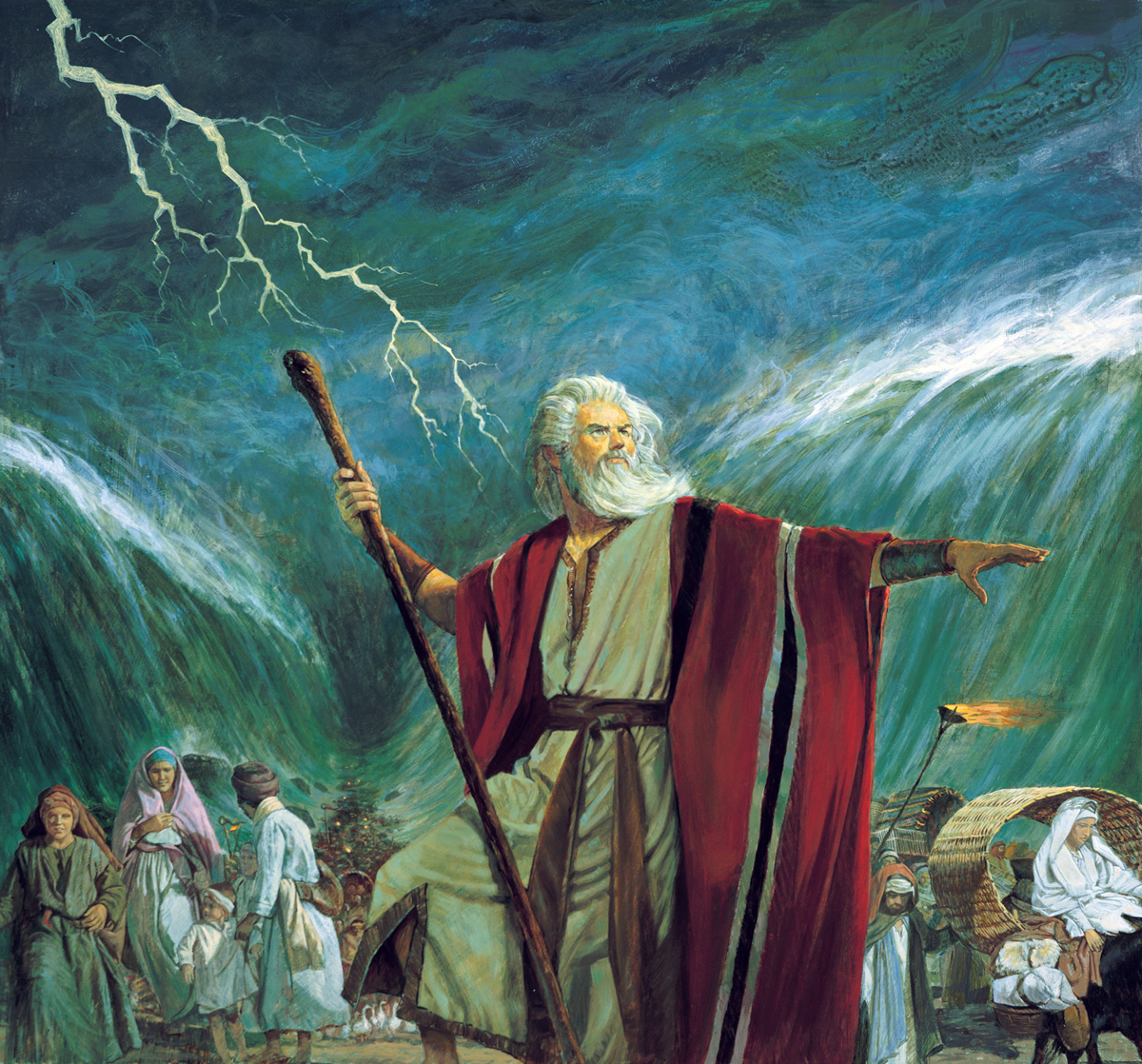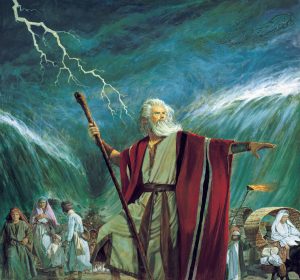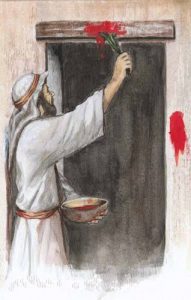Exodus 14
Pharaoh Pursues the Israelites
1And Jehovah spoke to Moses, saying, 2Speak unto the children of Israel, that they turn and encamp before Pi-hahiroth, between Migdol and the sea: before Baal-Zephon, opposite to it, shall ye encamp by the sea. 3And Pharaoh will say of the children of Israel, They are entangled in the land, the wilderness has hemmed them in. 4And I will harden Pharaoh’s heart, that he may pursue after them; and I will glorify myself in Pharaoh, and in all his host; and the Egyptians shall know that I am Jehovah. And they did so.
5And it was told the king of Egypt that the people had fled; and the heart of Pharaoh and of his bondmen was turned against the people, and they said, Why have we done this, that we have let Israel go from our service? 6And he yoked his chariot, and took his people with him. 7And he took six hundred chosen chariots, and all the chariots of Egypt, and captains over every one of them. 8And Jehovah hardened the heart of Pharaoh king of Egypt, and he pursued after the children of Israel; and the children of Israel had gone out with a a high hand. 9And the Egyptians pursued after them, — all the horses and chariots of Pharaoh, and his horsemen, and his army, and overtook them where they had encamped by the sea, beside Pi-hahiroth, opposite to Baal-Zephon.
10And Pharaoh approached; and the children of Israel lifted up their eyes, and behold, the Egyptians marched after them; and the children of Israel were much afraid, and cried out to Jehovah. 11And they said to Moses, Is it because there were no graves in Egypt, thou hast taken us away to die in the wilderness? why hast thou done this to us, that thou hast led us out of Egypt? 12Is not this what we told thee in Egypt, when we said, Let us alone, and we will serve the Egyptians? For [it had been] better for us to serve the Egyptians than to die in the wilderness.
13And Moses said to the people, Fear not: stand still, and see the salvation of Jehovah, which he will work for you to-day; for the Egyptians whom ye have seen to-day, ye shall see them again no more for ever. 14Jehovah will fight for you, and ye shall be stillb
Parting the Red Sea
15And Jehovah said to Moses, Why dost thou cry unto me? Speak unto the children of Israel, that they go forward. 16And thou, lift thy staff, and stretch out thy hand over the sea, and divide it; and the children of Israel shall go on dry [ground] through the midst of the sea. 17And I, behold, I will harden the hearts of the Egyptians, and they shall pursue after them; and I will glorify myself in Pharaoh and in all his host, in his chariots and in his horsemen. 18And the Egyptians shall know that I am Jehovah, when I have glorified myself in Pharaoh, in his chariots and in his horsemen.
19And the Angel of God, who went before the camp of Israel, removed and went behind them; and the pillar of the cloud went from before them, and stood behind them. 20And it came between the camp of the Egyptians and the camp of Israel; and was a cloud and darkness, and lit up the night; and the one did not come near the other all the night.
21And Moses stretched out his hand over the sea; and Jehovah made the sea go [back] by a strong east wind all the night, and made the sea dry [land], and the waters were divided. 22And the children of Israel went through the midst of the sea on the dry [ground]; and the waters were a wall to them on their right hand and on their left. 23And the Egyptians pursued and came after them — all Pharaoh’s horses, his chariots and his horsemen, into the midst of the sea. 24And it came to pass in the morning watch, that Jehovah looked upon the camp of the Egyptians, in the pillar of fire and of the cloud, and embarrassed the camp of the Egyptians. 25And he took off their chariot wheels, and caused them to drive with difficulty; and the Egyptians said, Let us flee before Israel, for Jehovah is fighting for them against the Egyptians!
26And Jehovah said to Moses, Stretch out thy hand over the sea, that the waters may return upon the Egyptians, upon their chariots and upon their horsemen. 27And Moses stretched out his hand over the sea, and the sea returned to its strength toward the morning; and the Egyptians fled against it; and Jehovah overturned c the Egyptians into the midst of the sea. 28And the waters returned, and covered the chariots and the horsemen of all the host of Pharaoh that had come into the sea after them; there remained not even one of them. 29And the children of Israel walked on dry [ground] through the midst of the sea; and the waters were a wall to them on their right hand and on their left
30Thus Jehovah saved Israel that day out of the hand of the Egyptians; and Israel saw the Egyptians dead on the sea-shore. 31And Israel saw the great power d [with] which Jehovah had wrought against the Egyptians; and the people feared Jehovah, and believed in Jehovah, and in Moses his bondman. |
Notes
a Or ‘by’
b Or ‘ye shall hold your peace’
c Lit. ‘shot off’
d Lit ‘hand’ |
Synopsis
At the Red Sea, God acts in power according to the purposes of His love. Consequently the enemy, who was closely pursuing His people, is destroyed without resource. This is what will happen to the people at the last day, already in reality – to the eye of God – sheltered through the blood.
As a moral type, the Red Sea is evidently the death and resurrection of Jesus. It shows deliverance by redemption, and of His people as seen in Him. God acts in the people to bring them through death, out of sin and the flesh, and give them absolute deliverance from sin and the flesh by death, into which Christ had gone, and consequently from all the power of the enemy
Romans 3:20 to Romans 5:11 gives Christ’s death for sins, and resurrection for our justification; thence to the end of chapter 8, death to sin. Sin in the flesh is not forgiven, but condemned (Romans 8:3); but we as having died are not in the flesh at all, we are alive unto God through, or rather in, Jesus Christ. This takes us no farther than the wilderness, though passing through it as alive to God in Christ.
As to our standing and acceptance we are brought to God: our actual place is thus in the world, become the wilderness on our way to glory. We are made partakers of it already through faith. Sheltered from the judgment of God by the blood, we are delivered, by His power which acts for us, from the power of Satan, the prince of this world. The blood keeping us from the judgment of God was the beginning. The power which has made us alive in Christ, who has gone down into death for us, has made us free from the whole power of Satan who followed us, and, as to conscience, from all his attacks and accusations. We have done with the flesh as our standing, and Satan’s power, and, brought to God, are in the world with Him. The world, who will follow that way, is swallowed up in it.
Considered as the historical type of God’s ways towards Israel, the Red Sea terminates the sequel of events; and so for us. We are brought to God. Thus the forgiven thief could go straight to Paradise. As a moral type, it is the beginning of the Christian path, properly so called; that is to say, the accomplishment of the redemption by which the soul begins its Christian course, but is viewed as in the world, and the world become the wilderness of its pilgrimage; we are not in the flesh.
This is a solemn warning; worldlings who call themselves Christians take the ground of judgment to come, and the need of righteousness, but not according to God. The Christian goes through it in Christ, knowing himself otherwise lost and hopeless; the worldling in his own strength, and is swallowed up. Israel saw the Red Sea in its strength, and thought escape was hopeless: their conscience was awakened to death and judgment. But Christ has died and borne judgment for us, and we are secured and delivered by what we dreaded in itself. The worldling, seeing this, adopts the truth in his own strength, as if there were no danger, and is lost in his false confidence.
In itself, it is Christ’s death and resurrection. But that is not only meeting the holiness of God’s nature, which is the blood-shedding, but entering into the whole power of evil that was against us and making it null. Hence, though it be not our realising death and resurrection so as to be in heavenly places, we are owned as having died in Him, and He our life, so that we have left our old standing altogether. In Colossians, we are risen with Him; in Ephesians, also sitting in Him in heavenly places. Colossians is the risen man still on earth, the subjective state, what refers to heaven but is not there, as Christ Himself for forty days-Jordan crossed, but not Canaan taken possession of.
The Red Sea is in contrast to the Jordan representing our death with Christ, and, as to our state subjectively, our resurrection with Him-analogous to the forty days He passed on earth. To this the teaching of Colossians answers. Hence heaven is in hope. In Romans we are not risen with Christ. That involves, as a consequence, our being identified with Him where He is; and so, by the Holy Ghost when we are sealed, union. In Colossians we are risen with Him, but not in heavenly places. Colossians treats of life, with a hope laid up for us in heavenly places; not at all of the Holy Ghost. In Ephesians 2 we are risen with Him and sitting in heavenly places in Him, and then begins the conflict with spiritual wickedness in heavenly places, and testimony according to what is heavenly; so far this is Jordan and Canaan, and here the sealing and gift of the Holy Ghost is fully spoken of, and our relationship with the Father and with Christ, as sons, and as body and bride. Only Ephesians begins with our being dead in sins, so that it is a new creation; it is not death to sin. The blood-shedding, however, in one respect, has a more glorious character. God is glorified in it, though by crossing Jordan we are experimentally placed higher. That too is the fruit of the blood-shedding, in which there is not only the bearing of sins to meet our responsibility, but a glorifying of God, so as to bring us withal into God’s glory with Him, which is beyond all questions of responsibility.
|
Exodus 15
Moses’ Song of Deliverance
(2 Samuel 22:1-51)
1Then sang Moses and the children of Israel this song to Jehovah, and spoke, saying, I will sing unto Jehovah, for he is highly exalted: The horse and his rider hath he thrown into the sea.
2My strength and song is Jah a, and he is become my salvation: This is my God, and I will glorify him; My father’s God, and I will extol him.
3Jehovah is a man of war; Jehovah, his name
4Pharaoh’s chariots and his army hath he cast into the sea; His chosen captains also are drowned in the Red Sea.
5The depths covered them; they sank to the bottom as a stone.
6Thy right hand, Jehovah, is become glorious in power: Thy right hand, Jehovah, hath dashed in pieces the enemy.
7And by the greatness of thine excellency thou hast overthrown thine adversariesb: Thou sentest forth thy burning wrath, it consumed them as stubble
8And by the breath of thy nostrils the waters were heaped up; The streams stood as a mound; The depths were congealed in the heart of the sea.
9The enemy said, I will pursue, I will overtake, I will divide the spoil; my soul shall be sated upon them; I will unsheath my sword, my hand shall dispossess them
10Thou didst blow with thy breath, the sea covered them; They sank as lead in the mighty waters.
11Who is like unto thee, Jehovah, among the gods? Who is like unto thee, glorifying thyself in holiness, Fearful [in] praises, doing wonders?
12Thou stretchedst out thy right hand, the earth swallowed them.
13Thou by thy mercy hast led forth the people that thou hast redeemed; Thou hast guided them by thy strength unto the abode of thy holiness.
14The peoples heard it, they were afraid: A thrill seized the inhabitants of Philistia.
15Then the princes of Edom were amazed; The mighty men of Moab, trembling hath seized them; All the inhabitants of Canaan melted away.
16Fear and dread fall upon them; By the greatness of thine arm they are still as a stone; Till thy people pass over, Jehovah, Till the people pass over that thou hast purchased.
17Thou shalt bring them in, and plant them in the mountain of thine inheritance, The place that thou, Jehovah, hast made thy dwelling, The Sanctuary, Lord, that thy hands have prepared.
18Jehovah shall reign for ever and ever!
19For the horse of Pharaoh, with his chariots and with his horsemen, came into the sea, and Jehovah brought again the waters of the sea upon them; and the children of Israel went on dry [ground] through the midst of the sea.
20And Miriam the prophetess, the sister of Aaron, took the tambour in her hand, and all the women went out after her with tambours and with dances
21And Miriam answered them, Sing to Jehovah, for he is highly exalted: The horse and his rider hath he thrown into the sea.
The Waters of Marah
22And Moses brought Israel from the Red Sea, and they went out into the wilderness of Shur; and they went three days in the wilderness, and found no water. 23And they came to Marah c, and could not drink the waters of Marah, for they were bitter; therefore the name of it was called Marah. 24And the people murmured against Moses, saying, What shall we drink? 25And he cried to Jehovah; and Jehovah shewed him wood, and he cast it into the waters, and the waters became sweet. There he made for them a statute and an ordinance; and there he tested them. 26And he said, If thou wilt diligently hearken to the voice of Jehovah thy God, and do what is right in his eyes, and incline thine ears to his commandments, and keep all his statutes, I will put none of the complaints upon thee that I have put upon the Egyptians; for I am Jehovah who healeth thee.
27And they came to Elim; and twelve springs of water were there, and seventy palm trees; and they encamped there by the waters. |
Notes
a ‘Jah’ may be a short form of ‘Jehovah’. But it seems to express His absolute rather than His continuous existence. See Ps 68:4 ‘His name is Jah’ – The existing one objectively.
b Lit ‘them that rose up against thee’.
c Bitterness |
Synopsis
The people, their loins girded, having eaten in haste, with the bitter herbs of repentance, begin their journey; but they do so in Egypt: yet now God can be, and He is, with them. Here it is well to distinguish these two judgments, that of the firstborn, and that of the Red Sea. As matters of chastisement, the one was the firstfruits of the other, and ought to have deterred Pharaoh from his rash pursuit. But the blood, which kept the people from God’s judgment, meant something far deeper and far more serious than even the Red Sea, though judgment was executed there too [See Note #2]. What happened at the Red Sea was, it is true, the manifestation of the illustrious power of God, who destroyed with the breath of His mouth the enemy who stood in rebellion against Him-final and destructive judgment in its character, no doubt, and which effected the deliverance of His people by His power. But the blood signified the moral judgment of God, and the full and entire satisfaction of all that was in His being. God, such as He was, in His justice, His holiness, and His truth, could not touch those who were sheltered by that blood Was there sin? His love towards His people had found the means of satisfying the requirements of His justice; and at the sight of that blood, which answered everything that was perfect in His being, He passed over it consistently with His justice and even His truth. Nevertheless God, even in passing over, is seen as Judge; hence, so long as the soul is on this ground, its peace is uncertain though the ground of it be sure-its way in Egypt, being all the while truly converted-because God has still the character of Judge to it, and the power of the enemy is still there.
|
Psalm 106
Give Thanks to the Lord, for He is Good
1 Hallelujah! Give ye thanks a unto Jehovah; for he b is good; for his loving-kindness [endureth] for ever. . . .
6We have sinned with our fathers, we have committed iniquity, we have done wickedly.
7Our fathers in Egypt considered not thy wondrous works; they remembered not the multitude of thy loving-kindnesses; but they rebelled c at the sea, at the Red Sea.
8Yet he saved them for his name’s sake, that he might make known his might.
9And he rebuked the Red Sea, and it dried up; and he led them through the deeps as through a wilderness d
10And he saved them from the hand of him that hated [them], and redeemed them from the hand of the enemy
11And the waters covered their oppressors: there was not one of them left.
12Then believed they his words; they sang his praise.
13They soon forgot his works; they waited not for his counsel: |
Notes
a Compare 1 Chron 16:34-36
b Or, ‘it is good’
c Or, ‘provoked him’, as v. 43
d Or, ‘the wilderness’. See Ezek 34:25 |
Synopsis
It is the practical piety which proves, in its own confession, enduring mercy. It then goes through all the history of Israel with this view; and at the close shows that, in spite of all, Jehovah, remembering His covenant, thought on their affliction, and caused them to be pitied of the heathen, among whom they were. For this mercy he now looks, that they may triumph in the praise of Jehovah. |
Hebrews 11
The Faith of Moses
23By faith Moses, being born, was hid three months by his parents, because they saw the child beautiful; and they did not fear the injunction of the king. 24By faith Moses, when he had become great, refused to be called son of Pharaoh’s daughter; 25choosing a rather to suffer affliction along with the people of God than to have [the] temporary pleasure of sin; 26esteeming a the reproach of the Christ greater riches than the treasures of b Egypt, for he had respect to the recompense. 27By faith he left Egypt, not fearing a the wrath of the king; for he persevered, as seeing him who is invisible. 28By faith he celebrated c the passover and the sprinkling of the blood, that the destroyer of the firstborn might not touch them. 29By faith they passed through the Red sea as through dry land d; of which the Egyptians having made trial were swallowed up. |
Notes
a These are aorist, the English present participle is joined to the perfect tense, as characterising the action. ‘He refused. . . choosing’, ‘he refused. . .having chosen’, would make a different time of it, not the same. In Greek all is referred to the time of speaking.
b Some MSS read ‘in’
cb Here and v. 17, as to the offering up Isaac, the verbs are in the perfect; this is remarkable. The other facts are generally passing facts, part of the whole history; these are of standing significance, either figuratively setting the believer on a new ground, or viewed as continued till the time of the epistle: ‘by faith Abraham has offered,’ ‘by faith he has celebrated;’ only this is not possible in English. It was not external continuance, for the blood sprinkling was only once.
d Some MSS omit ‘dry’ |
Synopsis
The power of God is manifested, and manifested in judgment. Nature, the enemies of God’s people, think to pass through this judgment dry-shod, like those who are sheltered by redeeming power from the righteous vengeance of God. But the judgment swallows them up in the very same place in which the people find deliverance – a principle of marvellous import. There, where the judgment of God is, even there is the deliverance. Believers have truly experienced this in Christ. The cross is death and judgment, the two terrible consequences of sin, the lot of sinful man. To us they are the deliverance provided of God. By and in them we are delivered and (in Christ) we pass through and are out of their reach. Christ died and is risen; and faith brings us, by means of that which should have been our eternal ruin, into a place where death and judgment are left behind, and where our enemies can no longer reach us. We go through without their touching us. Death and judgment shield us from the enemy. They are our security. But we enter into a new sphere, we live by the effect not only of Christ’s death, but of His resurrection.
Those who, in the mere power of nature, think to pass through (they who speak of death and judgment and Christ, taking the Christian position, and thinking to pass through, although the power of God in redemption is not with them) are swallowed up.
With respect to the Jews, this event will have an earthly antitype; for in fact the day of God’s judgment on earth will be the deliverance of Israel, who will have been brought to repentance.
This deliverance at the Red Sea goes beyond the protection of the blood in Egypt. There God coming in the expression of His holiness, executing judgment upon evil, what they needed was to be sheltered from that judgment to be protected from the righteous judgment of God Himself. And, by the blood, God, thus coming to execute judgment, was shut out, and the people were placed in safety before the Judge. This judgment had the character of the eternal judgment. And God had the character of a Judge.
At the Red Sea it was not merely deliverance from judgment hanging over them; God was for the people, active in love and in power for them. The deliverance was an actual deliverance: they came out of that condition in which they had been enslaved, God’s own power bringing them unhurt through that which otherwise must have been their destruction. Thus, in our case, it is Christ’s death and resurrection, in which we participate, the redemption which He therein accomplished, which introduces us into an entirely new condition altogether outside that of nature. We are no longer in the flesh.
In principle the earthly deliverance of the Jewish nation (the Jewish remnant) will be the same. Founded on the power of the risen Christ, and on the propitiation wrought out by His death, that deliverance will be accomplished by God, who will intervene on behalf of those that turn to Him by faith: at the same time that His adversaries (who are those also of His people) shall be destroyed by the very judgment which is the safeguard of the people whom they have oppressed.
|
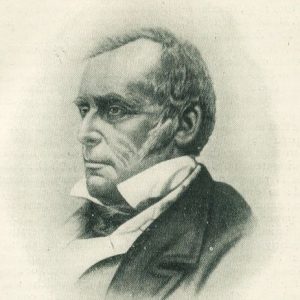 One thing I would pray for, because I love the Lord’s sheep, is that there might be shepherds. I know nothing, next to personal communion with the Lord, so blessed as the shepherds feeding the Lord’s sheep, the Lord’s flock; but it is the Lord’s flock…that changes the whole aspect of things. When it is felt to be the Lord’s flock a man has to look over, what thoughts of responsibility, what care, what zeal, what watchfulness! I do not see anything so lovely. “Lovest thou me? Feed my sheep—feed my lambs.” I know nothing like it upon earth—the care of a true-hearted shepherd, one who can bear the whole burden of grief and care of any soul and deal with God about it. I believe it is the happiest, most blessed relationship that can subsist in this world.
One thing I would pray for, because I love the Lord’s sheep, is that there might be shepherds. I know nothing, next to personal communion with the Lord, so blessed as the shepherds feeding the Lord’s sheep, the Lord’s flock; but it is the Lord’s flock…that changes the whole aspect of things. When it is felt to be the Lord’s flock a man has to look over, what thoughts of responsibility, what care, what zeal, what watchfulness! I do not see anything so lovely. “Lovest thou me? Feed my sheep—feed my lambs.” I know nothing like it upon earth—the care of a true-hearted shepherd, one who can bear the whole burden of grief and care of any soul and deal with God about it. I believe it is the happiest, most blessed relationship that can subsist in this world.
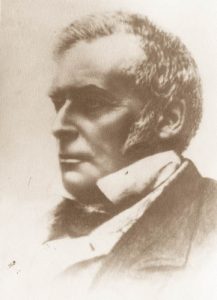
 Around Easter it was reported that the Pope was unsure as to the existence of hell. The Vatican unsurprisingly said that the Pope’s comments had been misrepresented. Nevertheless, a survey in the USA came up with the statistic that 30% of people identifying themselves as Christians did NOT believe in hell. (Evangelicals – 25% not believing in hell, ‘Mainline protestant’ 40%, Mainly-black Pentecostal’ 18%, Roman Catholic 37%, Orthodox 41%). Surprisingly 36% of those who said they had no religion DID believe in hell. (Source
Around Easter it was reported that the Pope was unsure as to the existence of hell. The Vatican unsurprisingly said that the Pope’s comments had been misrepresented. Nevertheless, a survey in the USA came up with the statistic that 30% of people identifying themselves as Christians did NOT believe in hell. (Evangelicals – 25% not believing in hell, ‘Mainline protestant’ 40%, Mainly-black Pentecostal’ 18%, Roman Catholic 37%, Orthodox 41%). Surprisingly 36% of those who said they had no religion DID believe in hell. (Source 